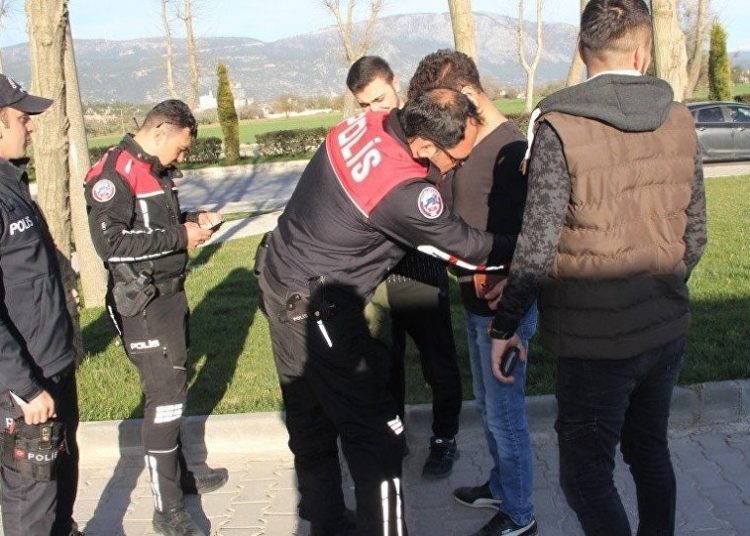Nordic Monitor
Serbia has become the first country to allow the deployment of Turkish police forces on its soil where they will be able to expand an ongoing witch-hunt against critics of Turkey’s president, Recep Tayyip Erdoğan.
President Erdoğan paid an official visit to Serbia to attend the second meeting of the Turkey-Serbia High Level Cooperation Council, held on October 7, 2019. Following the meeting, the parties signed two separate deals on joint patrolling by the police and security cooperation, the texts of which were obtained by Nordic Monitor. Both agreements encouraging the Turkish government to continue its crackdown on government critics and political persecution in the Western Balkans were approved by the Foreign Affairs Committee of the Turkish Parliament on February 19, 2020.
The Serbian government was previously criticized by human rights organizations for its close cooperation with Turkey on law enforcement issues. In December 2017, Serbia extradited to Turkey Kurdish politician Cevdet Ayaz, who had been seeking asylum, defying a warning from the United Nations Committee Against Torture (UNCAT). UNCAT subsequently adopted a decision finding Serbia in violation of Articles 3 and 22 of the Convention against Torture and Other Cruel, Inhuman or Degrading Treatment or Punishment for the extradition of Ayaz since Serbian authorities had not examined the possibility of the torture Ayaz might be subjected to in the event of his extradition to Turkey.
In parallel to the Ayaz case, UNCAT decided in June 2019 that the extradition of people who were thought to be members of the Gülen movement would constitute a breach of Article 3 of the aforementioned convention.

During the presidential visit, Turkish Defense Minister Hulusi Akar and Serbian Deputy Prime Minister and Interior Minister Nebojsa Stefanovic initialed a Memorandum of Understanding (MoU) on the performance of joint patrolling police services, in Belgrade on October 7, 2019.
Turkish media have presented the MoU as an important instrument for the Turkish government to arrest Erdoğan critics in Serbia. An information note (in Turkish) submitted to parliament by President Erdoğan underlined that the MoU would facilitate the government’s efforts to detect Gülen movement-affiliated people who had to leave Turkey.
“The Parties shall agree to engage police chiefs and officers of the Sending Party upon a written invitation of the Receiving Party to perform joint patrolling services in tourist areas and project sites of the Receiving Party, during the peak tourist season and on the occasion of major events or joint cooperative projects,” the first article of the MOU states.
Ambiguous phrases such as “project sites” and “joint cooperative projects” expand the scope of the agreement and expose the fact that the cooperation mechanism might be used by Turkish authorities as a tool in an ongoing witch-hunt against dissidents living in Serbia or visiting the country.
The 10-article MoU and an information note were submitted to parliament for ratification on January 30, 2020 by President Erdoğan. The last paragraph of the information note stresses that Turkish police patrols in Serbia will facilitate gathering data on people who had to leave Turkey to seek asylum in European countries.
The terms of the agreement will be executed by the interior ministries on both sides. The deal is valid for five years and will be automatically extended. According to the text, either party may notify the other of the intent to terminate at least six months in advance.
The letter submitted to parliament seeking approval of the MoU with Serbia:
Speaking before parliament’s Foreign Affairs Committee, Deputy Director General of the Turkish National Police Erhan Gülveren, an important ultranationalist figure in Turkish law enforcement, underlined the fact that such agreements would contribute to the Turkish government’s efforts to suppress people affiliated with the faith-based Gülen movement.
President Erdoğan turned against the movement, led by US-based Turkish Muslim scholar Fethullah Gülen, after major corruption investigations in December 2013 that incriminated Erdoğan, his family members and his business and political associates. In May 2016 Erdogan’s Turkey designated the group as a terrorist entity without any evidence that Gülen or people affiliated with the movement had committed any terrorist acts. Then, the controversial coup attempt in July 2016 became a pretext for an ensuing crackdown. Interestingly, Erdoğan called the failed coup “a gift from God.”
Following the coup attempt, thousands of Turkish citizens were forced to flee their homes due to his anti-democratic rule and an ongoing bloody purge of Erdoğan critics.
The full text of the cooperation agreement on joint patrolling police services is posted below:
In addition to the MoU, the two countries also signed a security cooperation agreement at the presence of Erdoğan and his Serbian counterpart, Aleksandar Vucic, in Belgrade. Similar to the texts of previous security accords, the cooperation agreement connects the activities of legal organizations to terrorism in accordance with Turkey’s definition of terrorism.
Article 2 (3.a) indicates that “the Parties shall prevent the activities of members/supporters of terrorist organizations reported by either of the Parties to be posing threat against its national security,” adding that the parties have already established “urgent executive measures to prevent further terrorist propaganda simultaneously.”
“The Parties shall develop and implement efficient combating measures regarding the persons and institutions providing financial or other support, including sheltering, accommodation, training and treatment, as well as logistical support to the terrorist organizations in their territories,” Article 2 (3.b) states.

According to the security cooperation mechanism, Turkey and Serbia pledge to cooperate in fighting transnational crimes, in particular, terrorism, organized crime, smuggling of goods and migrants, trafficking in human beings, narcotic drugs and psychotropic substances.
The 8-page security cooperation agreement is posted below:












